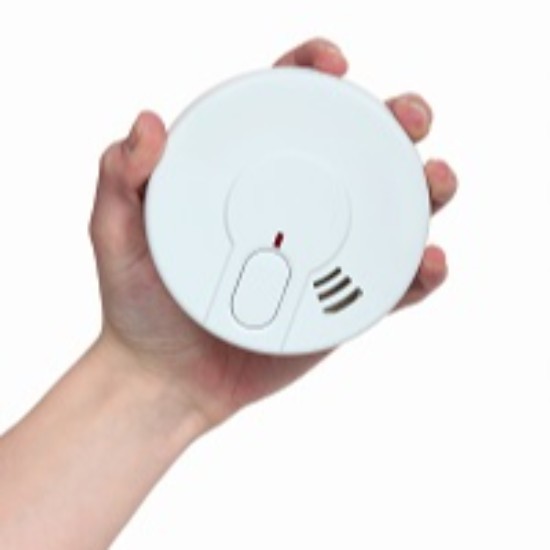
Your fire safety system depends on the accurate detection of smoke by your smoke detectors. In order to ensure your smoke detectors are working properly, and able to protect your people and assets, you must have sensitivity testing completed on a regular basis.
Smoke detectors are designed to function effectively within a specific range of sensitivity to smoke. This range is set by the manufacturer and the devices are required by NFPA to be tested regularly to ensure they remain within it. If a smoke detector is not as sensitive as it should be, then it may not react as quickly as it should to a fire. However, if the smoke detector is too sensitive, then you could have recurring nuisance alarms.
There are several options for performing sensitivity tests on smoke detectors. Sensitivity tests can be conducted by a recognized, calibrated test method with smoke or listed aerosol, or with equipment specifically designed for calibrating sensitivity in smoke detectors. There are listed control equipment arranged to perform sensitivity ranges and calibrated sensitivity test instruments designed by the smoke detector manufacturers. You can also use a combination smoke detector/control unit where the detector causes a signal at the control panel unit when its sensitivity is outside its listed sensitivity ranges.
During sensitivity testing, if a detector fails, it will need to be cleaned and retested. Cleaning smoke detectors should be left to your Life Safety Partner, as they will clean the smoke detector screen and chamber using a non-electrostatic vacuum specifically designed to prevent damage to the detector. After cleaning, the detector will be retested, if it fails again then it needs to be removed from service.
Sensitivity testing must be completed within one year of installation and every other year after that. After the second test, if the detector is within its listed sensitivity range for two consecutive tests, then the next sensitivity test is required in five years.
A1 is a leading expert on the latest technology in life safety. To find out more information or to ask a question, click here or call us at 1-800-859-6198.
